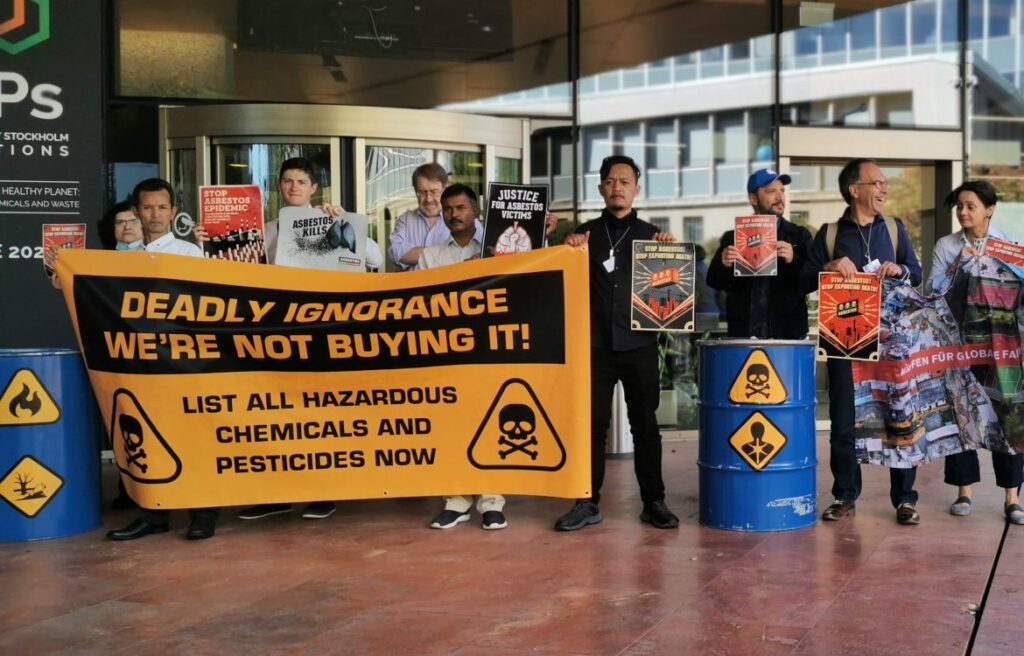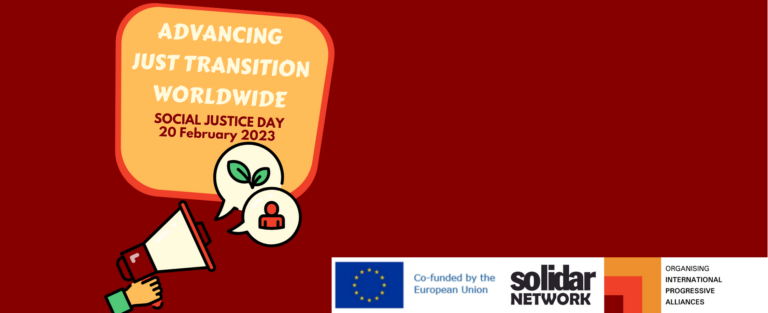Occupational Safety and Health: a fundamental right for a Just Transition
As indicated by the International Labour Organization (ILO) in its Guidelines for a just transition towards environmentally sustainable economies and societies for all, Occupational Safety and Health (OSH) is a fundamental dimension of Just Transition.
This year on June the 10th, during the 110th International Labour Conference in Geneva, delegates adopted a ground-breaking resolution, adding the principle of a safe and healthy working environment as the fifth fundamental right in the ILO’s Declaration on Fundamental Principles and Rights at Work.
With this landmark decision, OSH will become the fifth category, meaning that all ILO Member States commit to respect and promote the fundamental right to a safe and healthy working environment. This is of utmost importance in the context of workers’ protection from exposure to chemical hazards that harm their health, an issue that is still bringing a lot of concerns in developing countries and countries with economies in transition.
This is the reason why in 1998, 72 countries gathered and signed the Rotterdam Convention, a fundamental international tool that supports parties with the exchange of information on hazardous chemicals and their potential risks.
The aim of the Convention is to advise and improve national decision-making by informing countries about the hazardous chemicals and pesticides that enter their country. In fact, those countries that ratify the Convention agree to the Prior Informed Consent (PIC) procedure, meaning that they must decide whether to allow imports of certain hazardous chemicals and under what conditions. Substances that are subject to this PIC procedure are listed in Annex III of the convention. To this day, the Rotterdam Convention has 161 parties, and lists over 50 chemicals; a listing on the Convention does not ban a substance but it is often a trigger for countries to introduce regulation at a national level to protect workers and citizens from hazardous substances.
Regrettably, despite their hazard, five very dangerous substances are currently being blocked by individual parties from being listed, namely: chrysotile asbestos, acetochlor, carbosulfan, fenthion formulation, and paraquat formulation. This results in a great cost to the safety, health and lives of workers and consumers, especially for developing countries and countries with economies in transition, which have a limited chemicals management system. It means that officials, employers, workers and consumers in receiving countries do not know of these hazardous materials entering their country and are therefore not protected. The aforementioned substances meet all the requirements for listing onto Annex III, as determined by the Convention´s own scientific committee, the Chemical Review Committee (CRC), but as happened at the previous COPs, a very small number of Parties blocked the listing of certain substances and hindered the vast majority of countries basic right to know about what hazardous chemicals are entering their country.

On the 15th of June, Unions, NGOs – including SOLIDAR and its members SOLIDAR Suisse and APHEDA – and concerned activists released an open letter to all Parties to the Rotterdam Convention, including the EU, urging them to act to bypass these blocking tactics and modernise the Convention. It is fundamental that governments list onto Annex III of the Convention all CRC-recommended hazardous chemicals and substances blocked until now, particularly Asbestos, which is causing more than 200,000 deaths among workers every year.
The letter calls on National Governments to redouble efforts to improve the effectiveness of this important Convention, in order to protect workers and communities from exposure to hazards that harm their health. Twenty-four years have passed since the Convention was signed, and still many hazardous chemicals continue to evade from being included in its list of banned toxic substances.
Picture Credits: SOLIDAR Suisse
It is high time to implement the right to know for all Parties to the Convention, in line with the scientific recommendations given by the CRC, and, in this manner, to give a real contribution to the implementation of the fundamental right to OSH.






